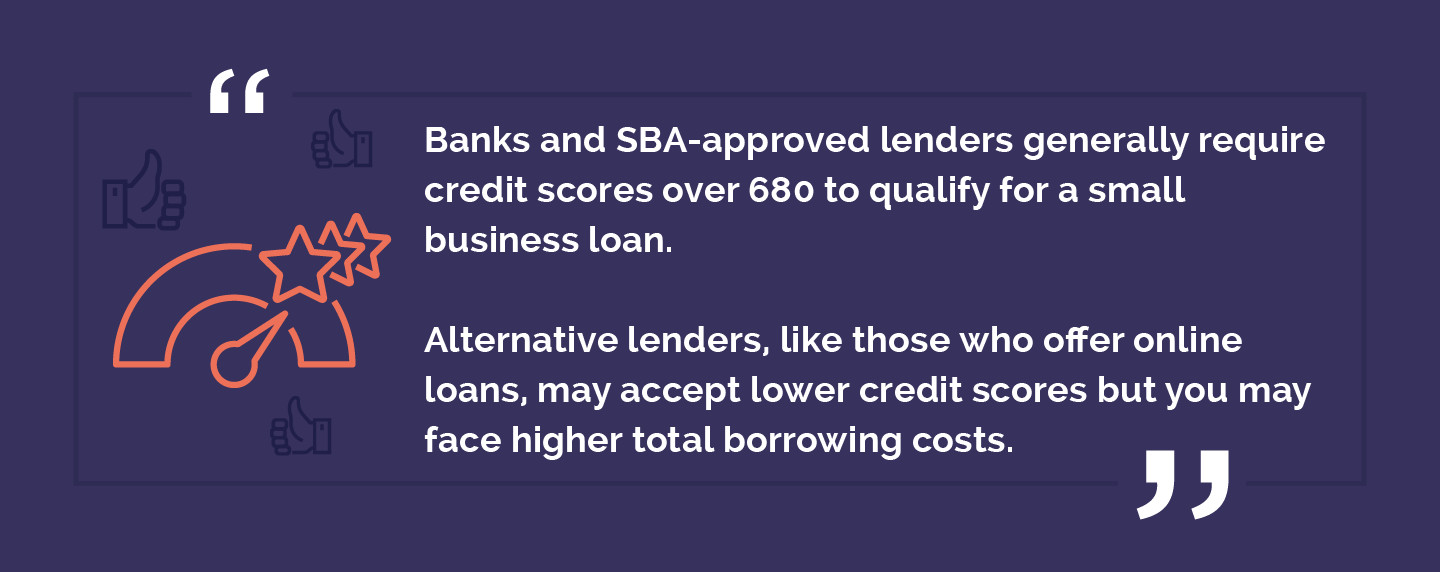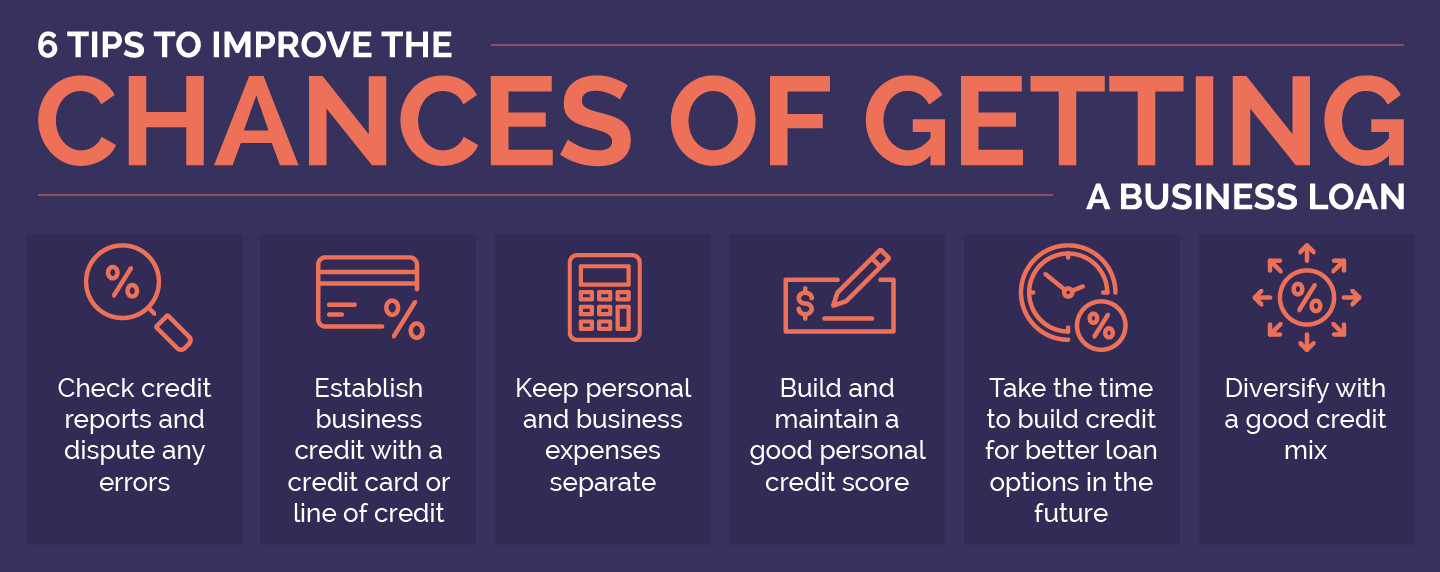Guide to Business Loans for Bad Credit in 2023

Share this article:
Editor’s note: Lantern by SoFi seeks to provide content that is objective, independent and accurate. Writers are separate from our business operation and do not receive direct compensation from advertisers or partners. Read more about our Editorial Guidelines and How We Make Money.
5 Bad Credit Business Loan Lenders
What Are Business Loans?
What’s Considered Bad Credit?
Personal Credit vs. Business Credit
Why Your Personal Credit Score May Matter for a Business Loan

New credit – 10% Credit mix – 10% Length of credit history – 15% Accounts owed – 30% Payment history – 35%
Applying for a Business Loan With Bad Credit
Checking Your Credit Scores
Dun and Bradstreet– One of the major reporting agencies for business credit. To get a score, you'll need to apply for a D-U-N-S number, which business lenders can use to find your business’s credit history and other information when they’re searching for and evaluating potential borrowers. Experian Equifax
6 Steps That Can Improve Your Chances of Getting a Business Loan

1. Checking your credit reports and disputing any errors
2. Establishing credit with a business credit card or line of credit
3. Keeping your business expenses separate from personal expenses
Open and maintain separate business and personal bank accounts Avoid using your business credit card for personal expenses and vice versa Register your business with an EIN number Hire a bookkeeper to manage accurate accounting for your business
4. Maintaining your personal credit score
5. Taking the time to build credit
6. Diversifying your credit
Preparing Documentation
Personal and business credit reports Business bank and financial statements Legal documents related to your business Business and personal tax returns Personal identifying documents Business plan
Comparing and Applying for Bad Credit Business Loans
When you need funding by The documents needed to apply Interest rates and terms and fees The length of application and approval time Required personal and/or business credit ratings Whether you have collateral to offer
Types of Alternative Bad Credit Business Loans
Secured Business or Personal Credit Cards
Peer-to-Peer (P2P) Lending
Equipment Financing
Invoice Factoring
Inventory Financing
Microloan
Merchant Cash Advance
Compare Options for Bad Credit Business Financing
Frequently Asked Questions
LCSB0622029
About the Author
Lantern is a product comparison site that makes it easy for individuals to shop for products and compare offers with top lenders. Lantern is owned and operated by SoFi Lending Corp., the digital personal finance company that has helped over one million people get their money right.
Share this article: